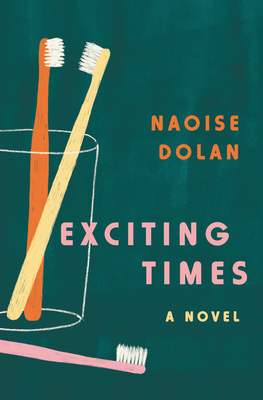I am so excited that this week, I get to hand this space over to a whole bunch of rad guests! I am so grateful to author (and #SpineSquad member) Jules Devito, who is gracing this space with some of her wisdom for querying authors. You may remember that I hosted a self-pubbed author not too long ago who wrote about how to know if querying is not for you. Well, what if you know querying IS for you? The internet is a sea of advice on how to go about doing it, and it can be a lot to sift through.
Jules has queried and successfully been signed by two different agents in her writing career, and had great relationships with both of us. I have deep respect for her prior representation, with whom she parted ways amicably, and I am super grateful that she decided to sign with me on her second time around. Today, Jules has written a little bit about what she’s learned through her querying process.

I am also truly honoured to welcome author, friend, and fellow literary agent, Cecilia Lyra, to this space! I have so much respect for CeCe as a reader and as a fierce, brilliant feminist, and for everything that she does in my life and in the literary community. She’s penned a review of the forthcoming novel Exciting Times, by Irish novelist Naoise Dolan, and I’m so glad to share it with my readers in PART because CeCe loved the book, but also because Naoise is queer and autistic, and we need more of these voices ringing out across the literary world.
BUT FIRST:
Shoutout to Santana Reads: Trans, Non-binary, and GNC Reviews and Recs
But first: I want to drop a few links to Santana Reads, a blog by a rad bi, genderfluid, Puerto Rican teen who Books Beyond Binary supports! Carolina has dropped some awesome content lately, including an interview with non-binary author Kacen Callender about their newest title, Felix Ever After. If you’ve been reading this blog a while you may recall that Callender is the author of one of my FAVOURITE all-time middle grade novels: Hurricane Child.

Carolina has also posted a review of Somebody Told Me, the first traditionally published book with a bigender protagonist (AND IT’S A THRILLER!); a review of fresh new LGBTQ2S+ book Verona Comics; a review of Girls Save the World in This One; and a fantastic list of 23 new and upcoming books by trans, non-binary, and GNC authors! Phew. Dear Carolina, you are on fire, how do you do it? Love, emmy.
Some titles I want to highlight from Carolina’s list that I am personally super looking forward to are Cattywampus, by Ash Van Otterloo, which is a magical MG that had me at the charming as all get out title; Even if We Break, by Marieke Nejkamp, who is not only an author whose YA thrillers are among my faves, but who is also queer, disabled, and autistic (like me!), and whose work reflects that. Also – can we TALK ABOUT THIS COVER PLEASE? Last, but not least, we have Ana on the Edge, by A. J. Sass, which is about a trans figure skater! Nostalgia calling…!

How to do the Query Thing, by Jules Devito
Clement St. John Sinjin Wyndhamhammersmythe, or: Things I Learned During (And After) Loads Of Querying
Hey book community! As some of you might know, I signed with Emmy last month, and I couldn’t be more excited. What you might not know is that I had another agent before signing with Emmy. Which means what? Yes: I’ve done a lot of querying. I sent out 88 queries before getting my first agent, and 3 before signing with Emmy. That’s a lot of rejections. But along the way, I picked up a few tidbits here and there that I’d like to share with you. This is just my personal experience talking, so, as we say in critique partner-land, YMMV.
The manuscript that I queried Emmy with is a dark, quirky, queer (queerky?) vampire romp – a bit of a departure from my usual SciFi manuscripts. One thing to keep in mind when querying is that you’re not just writing one book and calling it quits. You’ll write more, your style will change, your tastes might change too. So you’re looking for an agent who represents everything you think you might write in the future. More on this later. For now, let’s start with:
Oldschool Querying
WOW, I started querying for my first novel ten years ago, way before I had any business releasing it into the wild. Do you know what querying was like back then? Not all agents even had an email address. So you’d print your query and send it via snail mail, and then you’d wait weeks—or months—to get a reply in your actual mailbox. Gross!
So I began querying for my first manuscript in 2010, and I didn’t sign with my previous agent until 2015. Seven whole drafts later.
Therefore step one—and every literary blog, every agent, every editor, everyone and their dog will tell you this, because it is so true–is to make sure your manuscript is ready. I know, I know, it is always ready, right? You’ve already cast the Netflix series in your mind, time to get started! But leaping empty-handed into the void and hoping for a net isn’t quite the thing in publishing, and that’s because you might find yourself burning through your list of agents in a big-time rush, and some of them might not give you a second chance after that first rejection. So if it takes six or seven drafts before your critique partners / mentors / writing communities agree that it’s ready, then take the time to redraft. Don’t blow your chances before you’re ready to go. Publishing is slooooooow anyway. Think of it like orchids: you tend them for a whole year just to get a few blooms. (But the blooms last for a really long time and are so worth the wait.)

I made loads of mistakes. Starting queries with “What if” questions, yikes! Scattershot querying. Not researching agents enough. (Although, again: in the early 10s it was hard to come by resources with which to research them. There was a physical book, inches thick, which listed every agent, editor, and publisher, and gave you the tiniest, most pointless little blurb about their likes and dislikes. So personalizing your query back then was a challenge.)
What Finally Worked
Publishing, and naturally, agenting as well, changed a lot in those years. Like, did you know: Back in the 10s and earlier, having written fanfic was almost sure to get you rejected? So when you started to send out those queries, you had to scrub your fandom presence if you wanted to be taken seriously. Thank goodness that changed. Now, many agents grew up in fandoms themselves and consider this a plus. Not all, so do your research. But being a fic writer doesn’t disqualify you anymore; in fact, if you have a positive social media presence, you might even want to include links. That was one of the things that worked for me the first time.
Another thing I did was to change the name of my novel. I can’t stress this bit enough: Make sure your title is accessible, clear, catchy, and easy to understand and to pronounce. The week I changed my title was the week I got three full requests.
I entered every contest I could find to win critiques, chances to talk to agents, opportunities to pitch to them. I entered two pitch contests, two auctions, and in one case played a game of “guess what I’m thinking” with a high-profile agent on Twitter to win a ten-page critique. These were game-changers. Those query critiques and five/ten-page critiques that I won on Twitter improved the entire manuscript.
If an agent, editor, or writer is offering their help on any media platform, take them up on it. Take every opportunity to get eyes on your words. This might take a while. Feed those orchids.

It Doesn’t Always Work Out
BE HONEST. Be honest about what you want out of the business relationship, and more importantly, about your own passions. Approach the entire situation with openness, not only with your future agent, but with yourself. Both novels that I wrote previous to this last one were SF, and I’m comfy there. My brain likes it. But my heart wanted to write that queerky gothic vampire novel, and I should have admitted that to myself from the start.
So obviously, when you do get an offer from an agent and they ask about your future works, you already know to tell them your plans. But you can’t do that unless you’re being honest with yourself. If you suspect that someday your Id is going to push you to write sassy vampires escaping bad guys while running hand in hand through a Halloween corn maze, then square with that and be upfront about it. And if you and that agent aren’t on the same wavelength about the future of your career, it’s okay to start looking elsewhere, even if that seems like it’s going to set you back. Trust your manuscript. It got you one request, it will probably get you another.
You also don’t have to sign with the biggest or most famous agent or agency. Often, a smaller agency will be a better fit, if you like a personal touch.
Be patient. Remember: ORCHIDS.
Querying In ~*~Modern Times~*~
It’s so much easier now to know what an agent is looking for, and if they would be compatible with you and your work. Know your audience/agent. Google people, but don’t be stalkery. Manuscript Wishlist is the best resource there is. Did you know you can keyword search? “Gothic” “Vampire” “LGBTQA” “Adventure”! Keyword searching specifics can make a world of difference, and the MSWL is so detailed now, it’s really easy to personalize your query. Use that resource.
My new favorite thing? Form queries! They are so convenient. They practically tell you what to say, so you don’t have to struggle with what goes where (“do I lead with the hook? Do I start with the title and word count?”) It’s all laid out for you. But even so: keep a base query at hand, one that you can build on when you add personalizations specific to different agents.
These days, an agent might ask for some links. Do you have a Pinterest mood board for your manuscript? A Spotify playlist? It might be worth it to have a few links to include, if requested. (This was the most exciting bit to me. Wait, so you want to see my self-indulgent mood board? And my MIX TAPE? HECK YES.)

The Call… or Not!
The Call can be completely stressful if you have phone anxiety or social anxiety. The good news is, not all agents need to hear your voice these days. That’s a huge plus also for someone who needs time to think about what they want to say, and make bullet-pointed lists. It’s a good idea to have that anyway, this way if you do have to talk on the phone, you’ll have some guidelines. Also, I think it’s all right to be upfront about your anxiety. The old wisdom was “don’t lead with a weakness,” but I don’t like to think of that as a weakness. I can’t say it enough: Be honest! Agents get nervous too.
So when I signed with Emmy, we mutually decided to do “the call” via email, which for me was much more organized and easier to follow. But you—and your potential agent—may feel differently and that is also great.
What else did all those old advice pages say? Almost everyone still advises that you should ask which publishing houses or specific editors the agent has in mind for your manuscript. It’s supposed to make you sound knowledgable and professional, but again: Is that honest? Your query will divulge how much or how little experience you have in publishing, and you should never pad your query with exaggerations. You will be googled. So why are you bothering to sound like an in-the-know pro if you’re not? The agent is excited about your manuscript, not your connections.
And anyway, how familiar are you with the names they might give you? “Oh yes, the famous editor Clement St. John Sinjin Wyndhamhammersmythe, I just had lunch with that old chap last week!” (Me, though? I actually do know Clement St. John Sinjin Wyndhamhammersmythe. You can ask Emmy.) I get it: You want to google the houses/editors they’re thinking of. Yeah, I do, too! And if they do throw you some names, that’s cool. Don’t get weird about it though. Leave people alone.
So, what should you ask? Personally, I love an editorial agent – in my opinion, that is the best kind of agent. MORE EYES ON YOUR WORDS. So it’s good to ask if they do editorial work and a round or two revisions before submitting. Yes, again, that takes a bit longer. ORCHIDS.

I’m a chatty, nervous person, and I like to check in a lot during revisions (I always feel like the woman who tried to restore the Jesus fresco.) Is your potential agent all right with checking in? What is their level of communication? You never want to feel like you’re annoying them.
I think it’s all right to ask if you can talk to some of their authors, but only after you get an offer. Chatting at signed authors before you’ve even queried the agent seems a little presumptuous. “Hey, what do you think, should I query your agent?” ¯\_(ツ)_/¯ I guess?? Do what you want!
Many agents will offer you some contacts with their authors after they make an offer, and if that’s their preference, that’s fine. But keep this in mind: Will any of those authors bad-mouth their agent? Hahahahaha not likely. If they’re still with their agent, then you can be sure they’re pretty happy. So you can contact all the authors you like, but I doubt you’re going to hear anything that will change your mind. “How was your experience with the agent Foreign Rights McNetflix-Series?” “OMG the absolute worst, can’t recommend.” Seriously?
What sorts of revisions do they have in mind? This is important! True story: I have a critique partner who was told by an agent that he would definitely sign her if she was willing to make her lead character “more marketable.” Well, what does that mean? When pressed, the agent clarified, “Straight.”
Run. Oh my god, run.
Be seriously open to change, because agents do have more experience than you, and they know what’s publishable. So to a point, you can’t be in too much of a committed relationship with your manuscript. But if they suggest any changes that make you feel uncomfortable, or that you really can’t get on board with, then chances are you and this agent will keep running into this particular wall, and you’re not going to have a good business relationship with them. Editorial suggestions should not feel personal – this is a business decision. If their suggestions make you feel bad, make your skin crawl, or make you feel like you suck, then it’s better to hold out for someone else.
You should never be made to feel like you suck. There is a gatekeeping aspect to agenting, but as a querying writer who knows that your manuscript is The Goods, try to think of it as searching for a compatible business partner. Agents are not the enemy or some door you need to batter down; you’re looking for someone who is as excited about your manuscript as you are. As with any relationship, you want them to feel a passion that matches yours. They shouldn’t be settling for you, nor you for them.

All of this advice goes for pretty much any relationship, business or personal, right? Be honest with yourself and with them from the start. This decision should make both of you happy and excited; neither of you should feel any trepidation about working together. Gut feelings are for real. Building this relationship will take time and work. Be patient but don’t spin your wheels for too long.
Remember, your manuscript is a Tall, Proud Orchid!
Review: Exciting Times, by Cecilia Lyra

There are many reasons to fall in love with this novel. I will give you three.
Let’s begin with Ava—our protagonist. Reason number one.
Originally from Ireland, twenty-two-year-old Ava moves to Hong Kong to find happiness, except all she finds is an insultingly unstimulating job teaching English to wealthy children and a crowded flat filled with passive-aggressive roommates. Is it any wonder she agrees to move in with her Brit banker friend Julian, who, yes, is a first-rate douchebag, but who is also able to offer her a comfortable lifestyle? Their arrangement is casual (at his insistence), sexual, and involves Julian buying her clothes and dinners. Ava might be a feminist, but she is also human—and, by her own account, manipulative, unscrupulous, and prone to moral cowardice. I don’t disagree with her self-assessment, not exactly. I take her point—Ava isn’t likeable by any means. But she is interesting, not in the least because of the source of her moral cowardice—Ava possesses a dangerous trifecta of qualities: she’s abundantly intelligent, sensitive, and self-aware. And, let me tell you, when you feel and think with that much intensity—and, more importantly, you know it—you can talk yourself into anything, particularly when you’re young. (If you don’t get it, it’s likely because you are and have always been a stable, well-adjusted person. Good on you.)
Reason number two—plot.
This would be an interesting enough story if we only followed Ava’s time living with elitist, commitment-phobe Julian. But it gets even better when we meet Edith, a stunning and ambitious Hongkonger lawyer. Edith enters Ava’s life when Julian is away on an extended business trip to who-cares-because-this-man-is-seriously-so-boring, leaving Ava at his posh flat. Edith takes Ava to the theatre. Edith is a spry conversationalist, a sharp observer, and a feminist. Edith speaks with a permanent note of surprise in her voice. Ava wants Edith. Or Ava wants to be Edith. Does it have to be only one? The point is that during the six months while Julian is away, Ava grows very close to the mythologically beautiful Edith. When they kiss, it’s electric. When Edith asks Ava about Julian, Ava lies and says they’re just friends (there is very little Ava won’t lie about). And when Edith asks Ava to be her girlfriend, Ava happily says yes. And then Julian comes back.
Which brings me to reason number three—themes.
Woven into this heartbreakingly raw, character-driven novel are themes such as the messiness of human interactions. The perils of overthinking. Social pressure—and how it affects even the most well-educated, politically confident individuals. Exploration of one’s sexuality. The nexus between monogamy and the patriarchy. Financial anxiety, particularly as it affects a generation that’s been screwed over one too many times by capitalism. Fear of intimacy. The trauma that comes with being an outsider. Lying as a means of survival. Avoidance, not as a result of cowardice, but as a form of self-harm. Cultural clashes. Race. Class. The true cost of letting someone in. Above all, this novel explores what it’s like to love at an age where single people enjoy so much ostensible freedom and yet are plagued with even more inner doubts. And it does all that through prose that is precise, witty, and fluid. The quality of the writing alone makes this an unforgettable novel. (I suppose that’s reason number four. Don’t blame me — blame Dolan for writing a book that’s too good to be recommended with any sort of brevity.)
A warning: those who enjoy likeable, cookie-cutter characters should stay away from this novel. Why anyone would enjoy that is beyond me—Once upon a time, there was a good girl who did good things is a decidedly uninteresting story—but to each their own. (Again: I’m talking to you, well-adjusted human.)
But.
If you’ve ever felt damaged, read this novel. If you’ve ever been plagued by self-consciousness, read this novel. If you’ve ever suffered because you didn’t fit in, read this novel. You need to meet Ava, to spend time with her. You might not like her. But if you’ve ever had to pretend—and if you’re a minority you have—you’ll understand Ava. You might even forgive her.
I know I did.
5/5 stars
A quick plug: If you loved this review, or found it helpful, please consider pre-ordering CeCe’s upcoming novel THE SUNSET SISTERS (also available through Amazon and Apple Books) – the perfect, affordable book for your 2020 summer reading!

PS, if you enjoyed this post, please consider leaving me a tip! It only takes a minute, and it allows me to keep creating content just like this, buying food for my pets, and pursuing my career as a literary agent!

